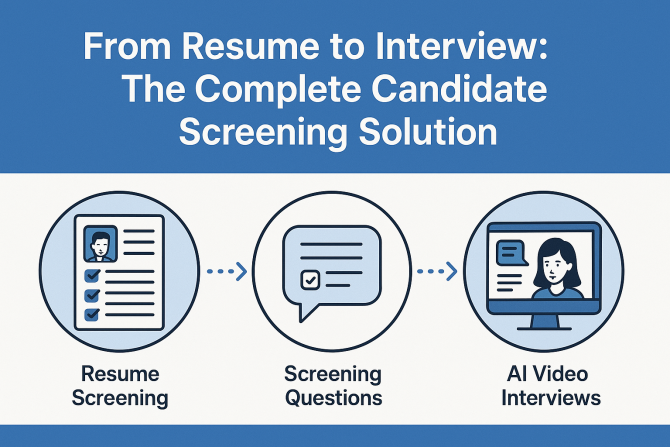
Why Is a Company Culture Survey So Important?
Organizational culture (also known as company culture, workplace culture, corporate culture, etc.) is an important factor that employees and potential job candidates highly appreciate.
By conducting a corporate culture survey, you can get an idea of how your employees feel about your organization's internal culture and which areas need some development. This information is essential since it can be used to keep workers longer in the organization. Besides, it might be helpful in creating strategies to attract new talents to open job positions.
It is evident that every aspect of corporate culture affects business. Culture survey results can also help management understand the importance of corporate culture. Through the insights gained from employees' answers, you can improve your organizational culture to create a better work environment that will benefit your company as a whole.
What Is a Company Culture Survey?
A company culture survey is a tool used to gather information from employees associated with a company to evaluate and improve the business and improve leadership strategies, future investments, and various organizational changes. This is a study that assesses how corporate culture is aligned with its promoted values and ethics.
An employer needs to understand what their employees have to say about their workplace culture, whether they are associated with it, and what they think could be improved to make the company a better place to work. Every single aspect of the organizational culture directly or indirectly affects the business.
A company where the management understands the importance of company culture and systematically tries to improve it will undoubtedly perform better than a company that is not aware of or has little interest in organizational culture.
In case there is a gap between the current corporate culture and the one that the company's management hopes to achieve in the future, conducting a work culture survey can help detect it. By analyzing employees' feedback and their views on the current culture, a company can develop specific strategies to shorten the distance between the present and desired workplace culture.
Companies intending to create a primarily behavioral workplace and focus on developing a supportive culture often rely on culture surveys. Gathering information about the current organizational culture and analyzing its alignment with the ideal culture will benefit the company in terms of better planning, higher productivity standards, employee engagement, and many other aspects.
Internal hierarchy, technology, skills, and qualities that influence actions and assumptions, the entire system is measured with the help of a company culture survey. With the employees' input, a company can start working on improving their views on the workplace culture, jobs, organizational structure, managing the performance of teams across the company, and improving management practices.
Why Are Employee Culture Surveys Beneficial?
If employees are happy with what they do, their customers will love it too. A positive corporate culture is reflected in all aspects of the business, from products and services to customer service. However, it is impossible to build a great workplace culture overnight. Asking your employees simple survey questions to understand what the organization's atmosphere is like can help you determine exactly how your workers feel about it. Such survey will show you if your employees are happy with the current company culture and what improvements, according to them, should be made in terms of that.
Work culture questions are useful for large corporations and start-up organizations that are eager to grow their businesses while maintaining their employees' performance and motivation. An excellent corporate culture keeps workers highly productive and motivated, which, in turn, positively affects the company's overall performance.
Ideally, workplace culture surveys should be conducted once or twice a year. This way, you will always know if there is something is going on in your organization that you did not know about. So if you are interested in learning about your own corporate culture and how to improve it, you should probably consider conducting a survey.
Company Culture Survey Questions
To help you create and conduct a corporate culture survey, Talenteria has shared some of the most popular survey questions. You may change them according to your own organization and needs.
Rate Your Level of Agreement
5 being 'strongly agree'
1 being 'strongly disagree'
- I feel like my voice is hardly heard at this company.
- I would like to work here as long as possible.
- I am quite satisfied with the benefits offered.
- I'm regularly rewarded for good work.
- I don't always enjoy working together with my colleagues.
Rate the Items
5 being 'strongly agree'
1 being 'strongly disagree'
- Promotion opportunities
- Flexible working hours
- Remote work
- Relationship with managers
- Relationship with colleagues
Open-Ended Questions
- Do you feel respected by your team and the company?
- Do you feel stressed and overwhelmed at work?
- How important is feedback to you?
- Do you have a say in the company's policy changes?
- What can we do to improve our organizational culture?
How to Conduct a Company Culture Survey
Developing a culture survey that can provide clear results requires careful planning. So before you start working on your workplace culture survey, you have to consider several things, such as the topic, length, format, and questions themselves.
1. Choose the Topic
Your company culture survey should have a specific focus and purpose. It might be tempting to combine different questions about different aspects of your business into one survey. Nonetheless, this can mislead employees about the true purpose of the survey and leave you unsuccessful. To be relevant to workers, survey topics must reflect the current state of what is happening in the organization at the given moment.
2. Consider the Timing
The key to an effective survey is to get the staff to think about their recent experiences from a broader perspective. Think about what events are going on in the company that you want to know more about, and prepare short, concise, and relevant surveys.
3. Establish the Length and Frequency
A survey can provide important information about your organizational culture. However, it is important to select only a few survey types that best suit your business and purposes. For instance, while doing an annual survey is unlikely to give you enough information about your organization and the atmosphere within the team, doing weekly pulse surveys can lead to survey fatigue. Your goal is to find that delicate balance between the frequency of surveys and the length of each one of them.
It is believed that a quarterly frequency of surveys that would not take more than 10 minutes to do might be optimal to encourage participation, prevent survey fatigue, and ensure management is informed in a timely and effective manner. Although, the frequency of surveys should also take into account the current situation in the global world, such as the Covid-19 pandemic.
Short pulse surveys on a weekly, bi-weekly, monthly, and quarterly basis can help small businesses better understand the highs and lows of their employees' experiences and help organizations be more flexible about key growth opportunities and challenges. Keep in mind that corporate culture surveys are vital for supervisors and employers and give voice to your employees.
4. Choose Clear Questions
Perhaps one of the most important parts of designing a successful company culture survey is deciding what questions to ask. Some surveys include a core set of questions that allow direct comparisons of progress over time, whereas some include individual questions based on trending topics or events. To avoid confusion, there should be only one variable per question (for instance, avoid using the word "and"). It is also recommended to ask questions that can generate feedback, which could be acted upon.
5. Select a Survey Format
To get clear results for each survey, you should determine which survey question format to administer. Most employers find that multiple-choice organizational culture surveys are most useful because consistent responses are easy to collect and analyze.
Open-ended questions might be a little more difficult to aggregate and collect the necessary information from, but they are still useful as well. Anyway, a mixed approach that combines assessment and offers free-form answers would work best for the majority of organizations.
Mixing different types of questions together is particularly useful for charting organizational progress over time and for ensuring that ideas and specific feedback are collected in a timely manner. Of course, you may want to consider using AI to measure sentiment and highlight key theses, but do not underestimate the importance of having managers and supervisors personally review survey data related to their own team.
6. Conduct Your Survey
Before conducting work culture surveys, clearly communicate their purpose to your employees. What is the survey for? What steps will be taken after completing and analyzing the survey? What is the projected schedule of events? Emphasize the objectives and importance of the survey to encourage workers' engagement.
In addition, employers should make sure the staff understands that the surveys are anonymous. Anonymous surveys allow you to get more candid and honest feedback. To ensure anonymity, you may use a third-party system or a survey partner (for example, SurveyMonkey, SurveySparrow, QuestionPro).
The most important part of conducting an effective organizational culture survey is what happens after it is completed.
Sharing key findings of the survey in a timely fashion is critical for future survey engagement. What's more, involving the team in the action can help increase engagement and make it easier to manage changes since workers will feel that they are part of the solution.
You can consider trying this 6-step process to conduct an effective work culture survey:
- Share your survey results and key topics with your staff.
- Choose three of these from the survey results where you can show measurable progress within a reasonable time frame, and communicate these 3 points to your team.
- Focus on improving these three things and keep your employees updated on progress.
- Before re-surveying the staff, prepare an end-of-quarter report to collect feedback on the impact of the change.
- Conduct the survey once again.
- Repeat the steps above.
Work Culture Survey vs. Employee Engagement Survey
Many companies and hiring managers wonder whether they should conduct workplace culture or employee engagement surveys in their organization. What is the difference between the two, and is it reasonable to conduct both? Here is a quick look at the key aspects that differentiate company culture surveys and employee engagement surveys.
Research Area
The area of study is what distinguishes corporate culture surveys from employee engagement questionnaires.
The latter focuses on how workers perceive the company and how they feel about their jobs. A survey like this will likely include questions about rewards and benefits, management's performance, promotion opportunities, and others.
An organizational culture survey focuses on how employees perceive a company's ethics, beliefs, values, organizational rules, and the ability to judge right and wrong.
Perspective
Employee engagement surveys are designed to give an answer from an "I" point of view. This applies to workers' everyday practices, experiences, assignments, motivation, commitment to work, etc.
A corporate culture survey is generally more focused on "Us." It delves into the values and shared beliefs that drive the behavior and thinking of the entire company. It determines how well employees know the organization's values and whether the workers share them.
Measurement
Employee engagement surveys assess the factors that affect employees' performance. It looks at how they feel about their jobs, duties, peer relationships, team relationships, well-being, work-life balance, cooperation, and more. This lets managers know if the staff feels supported, valued, excited, and controlled in their roles.
Ready to Start Implementing Company Culture Surveys?
Workplace culture surveys examine practices, internal organizational structures, technologies, etc., that influence employees' behavior and expectations. Issues covered include vision, mission, innovation, leadership style, management effectiveness, teamwork, and conflict management. By collecting opinions on these areas – and even more importantly, by actually addressing areas of concern – organizations can increase employee buy-in, improve the company culture, and ultimately, become more successful.
For more HR insights, check out our other Talenteria blog posts – they are a great resource for any hiring professional’s toolkit.





